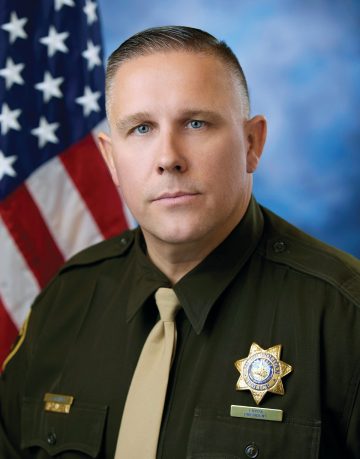Understanding LVPPA Membership and What We Do
In the realm of law enforcement in the state of Nevada, the LVPPA plays a significant role in advocating for our officers’ rights, negotiating labor agreements and shaping workplace policies. Membership in the PPA offers our officers a collective voice, protection against unfair treatment and a platform to address grievances. The PPA is also extremely active in the political space, as we have in-depth discussions with legislators and even the governor on issues affecting our officers both at work and in their personal lives.
The Role of Police Unions
Police unions, like the PPA, are formal organizations that represent officers in matters related to employment conditions, wages, benefits and legal protection. We negotiate your collective bargaining agreements to secure favorable terms for the members, including salary increases, health care benefits and working conditions, as outlined in NRS 288. Beyond economic benefits, we also provide legal representation and support during disciplinary proceedings or legal challenges. The PPA is also extremely active in the benevolent side of our members and their families.
Benefits of Membership
- Collective bargaining power: By bargaining collectively, we can achieve better working conditions and benefits for officers, ensuring they are adequately compensated and supported. The more members in the union, the stronger the voice is when it comes to these issues.
- Legal protection: Members often receive legal defense and support in cases of allegations or lawsuits arising from their duties, shielding them from potential financial and professional repercussions.
- Job security: Unions advocate for fair treatment and due process in disciplinary actions, preventing arbitrary firings or unfair treatment based on political or personal reasons.
Impact on Reform Efforts
In recent years, calls for police reform have intensified, prompting debates about the role and influence of police unions. We here at LVMPD even had a former executive staff member, on camera, talk negatively about police unions and say, “If we decide that a police officer should not be here any longer, isn’t that enough? They should not have some outside person who has never done the job tell the police department that they cannot fire an employee.” What he was advocating against was a fair process of an outside professional listening to the facts of the case and making an unbiased decision.
- Negotiating reform: Unions can influence the implementation of reform measures through collective bargaining agreements, either supporting or opposing changes, depending on their impact on members.
- Political advocacy: Unions often engage in political advocacy to influence legislation and public policy affecting law enforcement practices and shaping the regulatory environment in which officers operate. We take an extremely active role in this space. We even send a full-time representative up to Carson City for the entire legislative session to make sure we are doing everything possible to advocate on behalf of our membership.
As we continue forward in this profession of being an officer, we at the PPA continue to strive to improve working conditions, increase the money in our officers’ pockets and defend our officers in any forum necessary, including social media and regular media. We have never, and will never, shy away from standing up for our profession, even if it isn’t directly tied to our organization. Officers matter in our country and should be treated with the utmost respect, as we truly are the thin blue line between good and evil. Many of you stand on that line every day, and because of you, the innocent feels safe. Thank you for what you do, and please stay safe.


